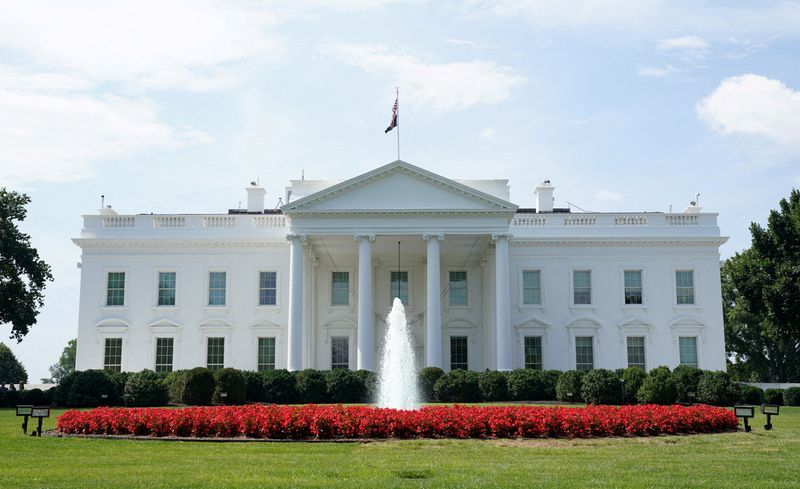By Andrea Shalal and Pete Schroeder
WASHINGTON (Reuters) -The Biden administration urged banking authorities to tighten regulation of mid-sized banks, which it said could be pushed through without support from a split Congress.
Banks with between $100 billion and $250 billion in assets should hold more liquid assets, increase their capital, submit to regular stress tests and write "living wills" that detail how they can be wound down, the White House said.
"These are all actions that can be taken under existing law and as a result, there's no need for congressional action in order to authorize the agencies to take any of these steps," said a senior White House official.
The White House's push for more regulation comes three weeks after the collapse of U.S. lenders Silicon Valley Bank and Signature Bank (OTC:SBNY) triggered market turmoil. Banking stocks reeled globally and the tumult prompted a government-orchestrated rescue takeover for Switzerland's Credit Suisse.
The White House proposals add momentum to the efforts of the Federal Reserve and other bank regulators to tighten oversight. Regulators told lawmakers this week that they are already looking to strengthen rules, particularly for mid-size lenders with between $100 billion and $250 billion in assets.
"Today, the president is urging the federal banking agencies to consider a set of reforms that will reduce the risk of future banking crises," the official said, underscoring the need to protect "the resilience and stability of the banking system going forward."
A 2018 law that eased requirements from the post-financial crisis Dodd-Frank Act, pushed by Republicans and some moderate Democrats, raised the threshold at which banks are considered systemically risky and subject to stricter oversight to $250 billion from $50 billion. Silicon Valley Bank had $209 billion in assets at the end of last year.
President Joe Biden's administration also called on regulators to require mid-sized institutions to undergo annual stress tests that bigger banks already face, and to submit so-called "living wills," or resolution plans.
Oppenheimer bank analyst Chris Kotowski said evening out the regulatory playing field for big and small banks was welcome but that there should be a "reasonable" period to phase in the changes.
'READY, FIRE, AIM'
The proposals were immediately criticized by bank lobbyists. Bank Policy Institute head Greg Baer said imposing more regulation on all banks would drive costs higher in the economy.
"It would be unfortunate if the response to bad management and delinquent supervision at SVB were additional regulation on all banks," he said in a statement.
"The Fed has barely begun its promised review. This has a strong feeling of 'ready, fire, aim.'"
Partially reinstating the rules rolled back under former President Donald Trump's administration would affect fewer than two dozen firms out of a total of more than 4,000 FDIC-insured U.S. banks.
The banks which would qualify, according to Fed data, include Citizens Financial (NYSE:CFG) Group, First Republic Corp, Fifth Third, Huntington and Regions. The banks did not immediately respond to requests for comment.
According to Federal Reserve data, about 30 banks had assets of more than $100 billion at the end of last year, a list that included Silicon Valley Bank and Signature Bank.
Nearly half of those were already subject to tougher scrutiny because they had more than $250 billion in assets, and a handful of banks were on the cusp of crossing that threshold.
The Federal Reserve's top regulator told Congress this week that Silicon Valley did a "terrible" job at risk management, but Republicans and Democrats have also criticized regulators and the agency for lax oversight.
Some Democrats, including Senator Elizabeth Warren, have called for the repeal of the 2018 changes entirely. But the prospects of legislation are unlikely given Republican control of the House of Representatives, according to analysts.
Warren welcomed Biden's push for stronger bank rules and said bank executives had "loaded up on risk to boost profits" after rules were weakened under Trump and Federal Reserve Chair Jerome Powell.

"Earlier this week, financial regulators committed in the Senate Banking Committee to do exactly what President Biden is calling for: strengthen our banking rules going forward to ensure the safety of our economy," she said on Twitter.
The White House official said senior administration officials had been in close touch with regulators about the proposed changes, but said the timing of any action would be up to the agencies, which are independent.